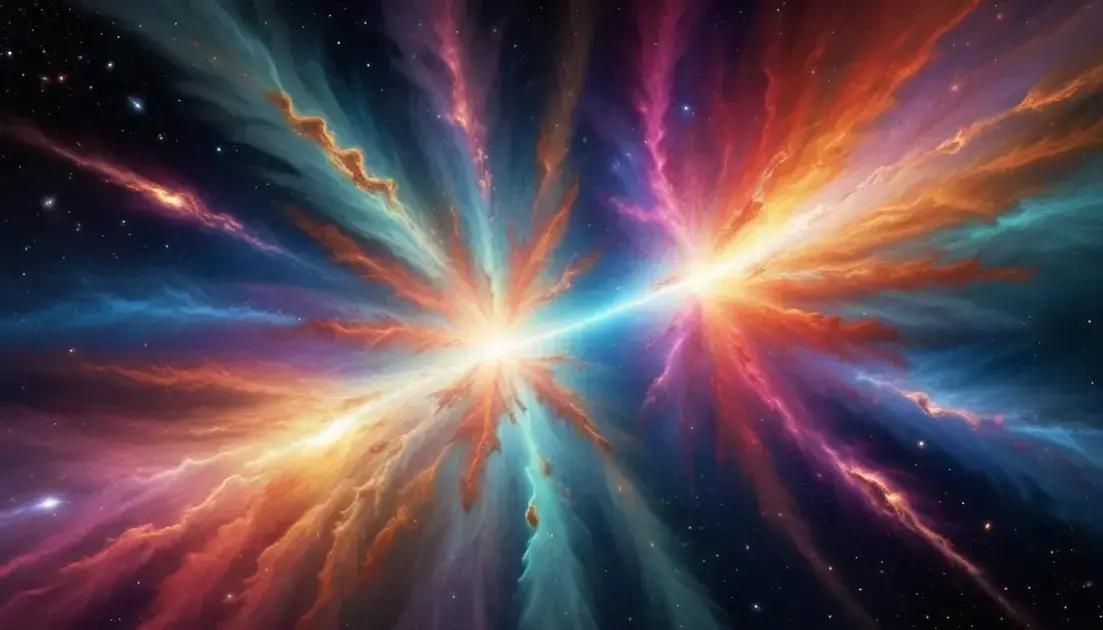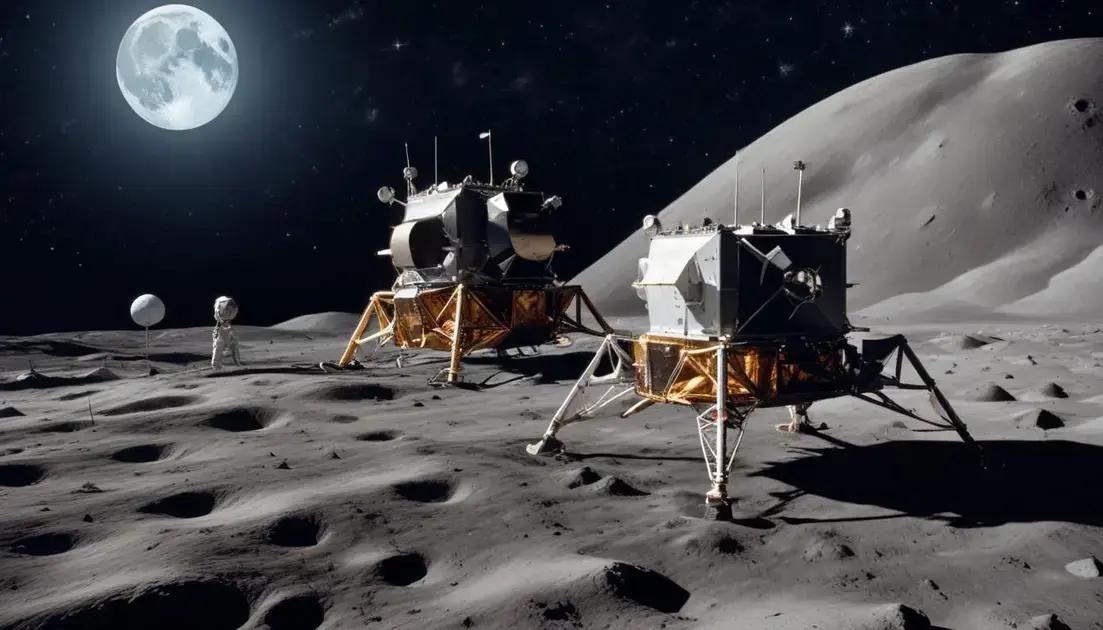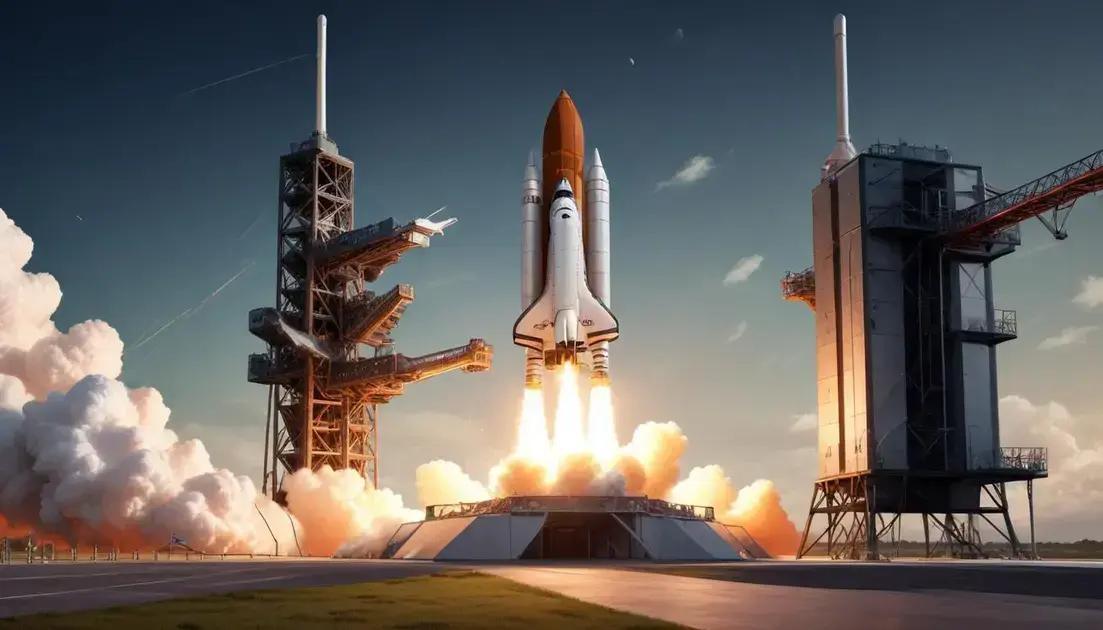
Big Bang: Origin and Cosmic Implications
The Big Bang theory explains the universe’s origins as an expansion from a hot, dense point over 13.8 billion years ago. Discoveries like Cosmic Microwave Background Radiation and the observable expansion of galaxies provide strong evidence for this theory. The concepts of dark matter and dark energy are crucial for understanding the universe’s structure and behavior. Additionally, this theory raises philosophical questions about existence and our place in the cosmos, connecting science with deeper human inquiry.
Have you ever wondered about the origins of our universe? The **Big Bang** theory offers fascinating insights that challenge our understanding of time and space. Let’s dive into its cosmic implications!
The Big Bang Theory Overview
The Big Bang theory is an exciting idea that explains how our universe began. It suggests that the universe started from a tiny, hot, and dense point around 13.8 billion years ago. Imagine everything you see in the night sky packed into a space smaller than a pinhead! That’s how it all began.
Understanding the Beginning
As the universe expanded, it cooled down, allowing particles to form. These particles eventually combined to create stars, galaxies, and planets. It’s amazing to think that the stars we see today started as tiny particles in that first explosion.
Evidence Supporting the Theory
Scientists have found strong evidence for the Big Bang. One key piece is the Cosmic Microwave Background Radiation. This faint glow fills space and is a remnant of the heat from the Big Bang. It shows us how the early universe might have looked.
Redshift and the Expanding Universe
Another important clue comes from something called redshift. When we look at distant galaxies, they appear to be moving away from us. This means the universe is still expanding! The farther away a galaxy is, the faster it is moving away. This is like blowing up a balloon where all points on the balloon move away from each other.
Why Does It Matter?
This theory changed our understanding of the cosmos. It helps us answer big questions about creation, existence, and what lies beyond our world. Exploring the Big Bang theory draws people into thinking about the universe’s mysteries and our place in it.
The Big Bang is more than just a scientific idea. It connects science with philosophy, making us wonder about the meaning of life. As we learn more, who knows what new wonders we might discover about our universe?
Scientific Discoveries
Many scientific discoveries have supported the Big Bang theory. These findings help us understand the universe’s history and expansion. One major discovery is the Cosmic Microwave Background Radiation.
Cosmic Microwave Background Radiation
This faint glow fills the universe. It comes from the heat left over after the Big Bang. Scientists discovered it in the 1960s using special instruments. This evidence tells us about the early universe.
Hubble’s Observations
The Hubble Space Telescope also changed everything. It showed us that galaxies are moving away from us. This observation supports the idea that the universe is expanding. The farther galaxies are, the faster they move away. This effect is known as redshift.
Elements in the Universe
Another important finding involves the elements in the universe. Scientists say hydrogen and helium formed just after the Big Bang. These light elements are still the most abundant in the cosmos, showing how the universe started.
Large Scale Structure
The Big Bang theory also helps to explain the large-scale structure of the universe. Scientists can see how galaxies cluster in space. This clustering gives us clues about the universe’s evolution over billions of years.
Connecting It All
All these discoveries fit together like pieces of a puzzle. They help us paint a picture of how the universe began and evolved. Each piece adds more detail to our understanding of this vast cosmos.
Philosophical Implications
The Big Bang theory isn’t just a scientific idea. It raises many intriguing philosophical questions. These questions help us think about our place in the universe.
What Came Before?
A big question is: What existed before the Big Bang? Some people wonder if time itself started then. If so, how can we understand something that has no beginning?
The Nature of Existence
The Big Bang also makes us think about existence itself. Why does the universe exist? What’s its purpose? Different cultures and philosophies have different answers. Some believe we are here by random chance, while others see purpose in our existence.
Human Connection to the Cosmos
This theory connects us to the cosmos in a unique way. It suggests we are made of the same stuff as stars. So, when we look up at the night sky, we’re looking at our cosmic relatives!
The Search for Meaning
As we learn more about the universe, we search for meaning in our lives. Questions about the universe inspire us to think about our own lives. What are our roles in this vast, expanding universe?
Faith and Knowledge
Lastly, the Big Bang theory sparks a dialogue between faith and science. Some people feel that science and belief can work together. They think that understanding the universe closer can deepen spiritual beliefs.
Current Understanding of the Universe
Our current understanding of the universe is fascinating and ever-growing. Scientists have made great strides in exploring space and learning how it works.
The Universe is Expanding
We now know that the universe is expanding. This means galaxies are moving away from each other. The farther away they are, the faster they move. This discovery supports the Big Bang theory.
Dark Matter and Dark Energy
Another important aspect is dark matter and dark energy. Dark matter makes up a large part of the universe. We can’t see it, but we know it’s there because of its effects on galaxies. Dark energy is believed to be responsible for the accelerated expansion of the universe.
The Role of Gravity
Gravity plays a big role in how the universe behaves. It pulls objects together, forming stars and galaxies. Without gravity, our universe would look very different.
The Formation of Stars and Galaxies
Stars form in clouds of gas and dust. Over time, these materials come together to create new stars. Galaxies are groups of stars, and they can be very large or small. Our home, the Milky Way, is just one of billions of galaxies.
Future of the Universe
When we think about the future of the universe, many theories arise. Some suggest the universe will continue expanding forever. Others say it might eventually collapse back in on itself in a process called the Big Crunch.
Conclusion
In conclusion, our understanding of the universe, from the Big Bang to dark matter and dark energy, opens up many exciting ideas. We see that the universe is expanding and that gravity plays a vital role in shaping everything we know. As new discoveries are made, we learn more about how stars and galaxies form.
The questions we ask about our universe help us reflect on our place in it. As we continue to explore and learn, we not only uncover the mysteries of the cosmos but also deepen our connection to it. The universe is vast and full of wonders, inspiring curiosity and awe in all of us.


